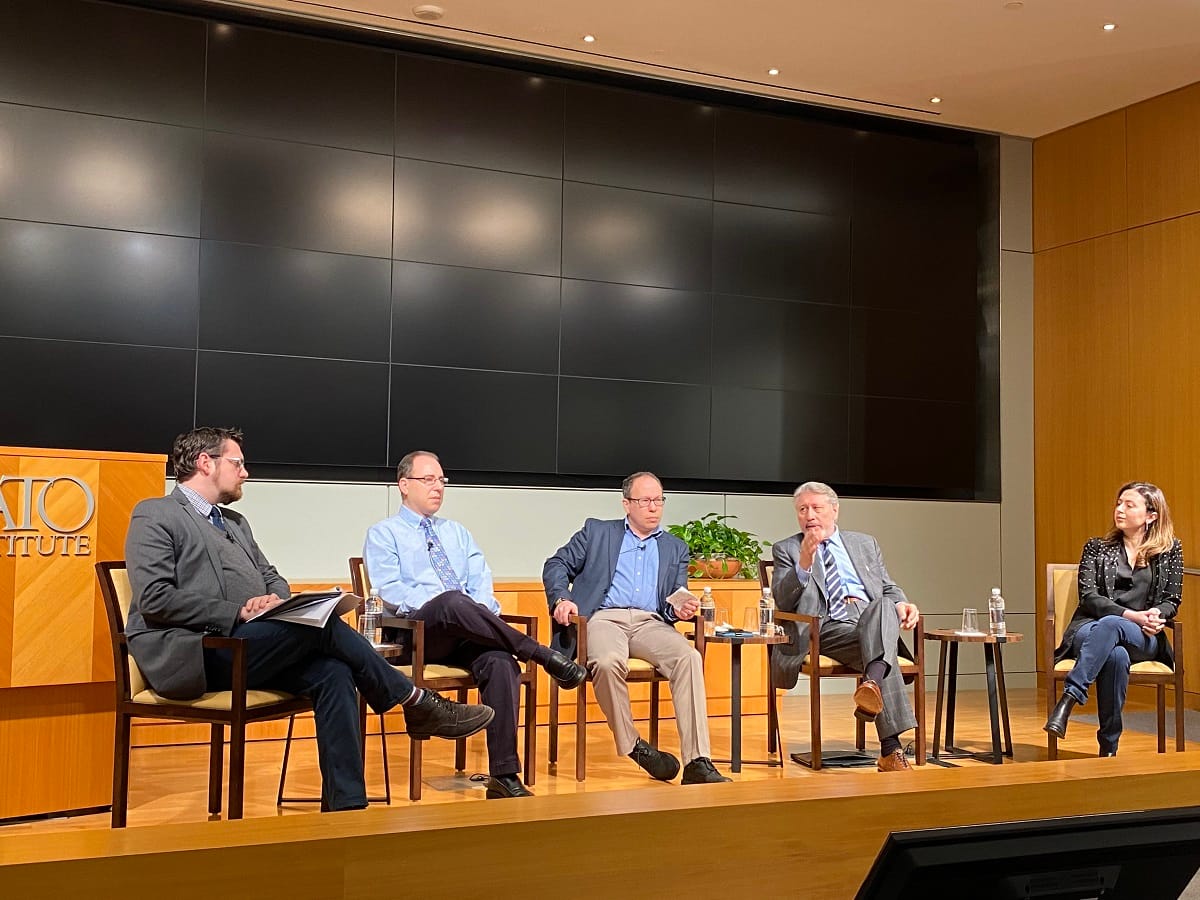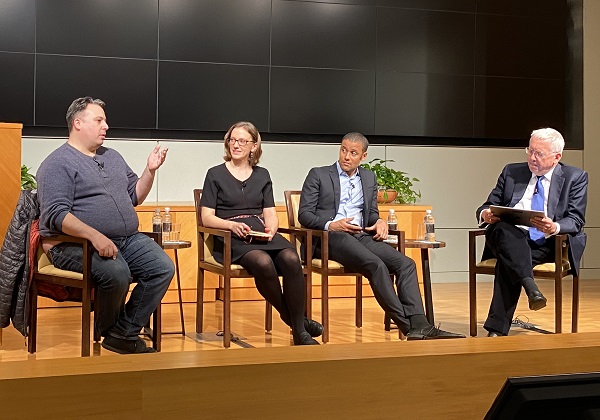Panelists at CATO Institute Fiercely Disagree Over Whether Big Tech is Biased and Left-Leaning
WASHINGTON, March 10, 2020 – A CATO Institute panel on Tuesday discussing whether accusations of political censorship warrant Section 230 reform was a tense microcosm of the divided debate over big tech and online speech. Panelists clashed over Section 230 reform in response to conservative allegati
Adrienne Patton

WASHINGTON, March 10, 2020 – A CATO Institute panel on Tuesday discussing whether accusations of political censorship warrant Section 230 reform was a tense microcosm of the divided debate over big tech and online speech.
Panelists clashed over Section 230 reform in response to conservative allegations that big tech is biased and left-leaning.
American Center for Law and Justice Special Counsel Craig Parshall said the big platforms are “the problem,” and Section 230 needs adjustments.
Michigan State University Law Professor Adam Candeub agreed, and suggested that big platforms are given “extraordinary legal immunity” where other media companies aren’t. He advocated ensuring that big tech does not reap benefits and immunity that small companies are denied.
Santa Clara University Law Professor Eric Goldman disagreed with his panelists’ assessment of big tech.
Goldman said this isn’t “the end game of the internet” with no innovation on the horizon or new competitors in the future.
Ashkhen Kazaryan, TechFreedom’s director of civil liberties fiercely opposed the accusation that platforms are biased against conservatives mainly because it is not a data-driven complaint.
And if they were biased, “why is that a bad thing” when it’s a private company, asked Kazaryan.
Kazaryan said that it is “mind boggling” that conservatives are advocating for government speech regulation “when just a few decades ago, they realized how hurtful that would be.”
Kazaryan was referring to the administration of President Ronald Reagan’s takedown of the Fairness Doctrine by the Federal Communications Commission – and a veto of congressional legislation that would have restored it by President George H. W. Bush.
Candeub accused big tech of using Section 230 as a distraction to their censorship.
Goldman kept insisting on clarifying terms throughout the panel. For example, he challenged the use of the term “censorship,” which he said was “designed to distract.” Instead, he said panelists were referring to “editorial discretion,” something Goldman reminded Candeub several times as he continued to say “private censorship.”
Section 230 does not only protect big tech platforms, it protects small companies too, said Kazaryan. She gave the hypothetical example of a university professor protected from liability on his or her website if users were selling drugs in the comment section.
Candeub said society is already “living with anti-discrimination regimes.”
To Candeub, a “compromise” would be to outline “clear types of discrimination” that “would be imposed in the same ways that the telephone companies” follow.
“Everything is political these days,” said Kazaryan. She said that the sweeping use of broad terms like “don’t discriminate” was “reckless.”
“That’s what the Putin route is,” said Kazaryan.
What does online moderation without government look like without government involvement?

During another panel during the mostly-day-long conference at CATO, user empowerment was framed as “probably not a one size fits all approach,” said Emma Llanso, director of the Free Expression Project at the Center for Democracy and Technology.
While some small services are already fostering positive online spaces, Llanso questioned what this would look like on a large platform like Facebook.
Llanso suggested making “explicit posting of rules” for the users, which can “improve quality of discourse.”
“Would speech be different if it weren’t anonymous?” asked Vice President of the CATO Institute John Samples.
Neuralink General Counsel Alex Feerst said just because someone has their name attached doesn’t mean they will act appropriately. He said it would be “worrisome” for the law to be harsher on anonymous speech.
Jacob Mchangama, director of Justitia, said restricting or abolishing anonymous speech online would be “every dictator’s dream.”
In regards to fake news, Mchangama said laws restricting misinformation are not new.
“If you take every single authoritarian state and also the totalitarian ones, they have laws against false information,” said Mchangama.
Mchangama said complaints in Europe about Russian misinformation “mirror the complaints that the Soviet Union made in the 70s when they were being pushed to be more free speech protective.”










Member discussion